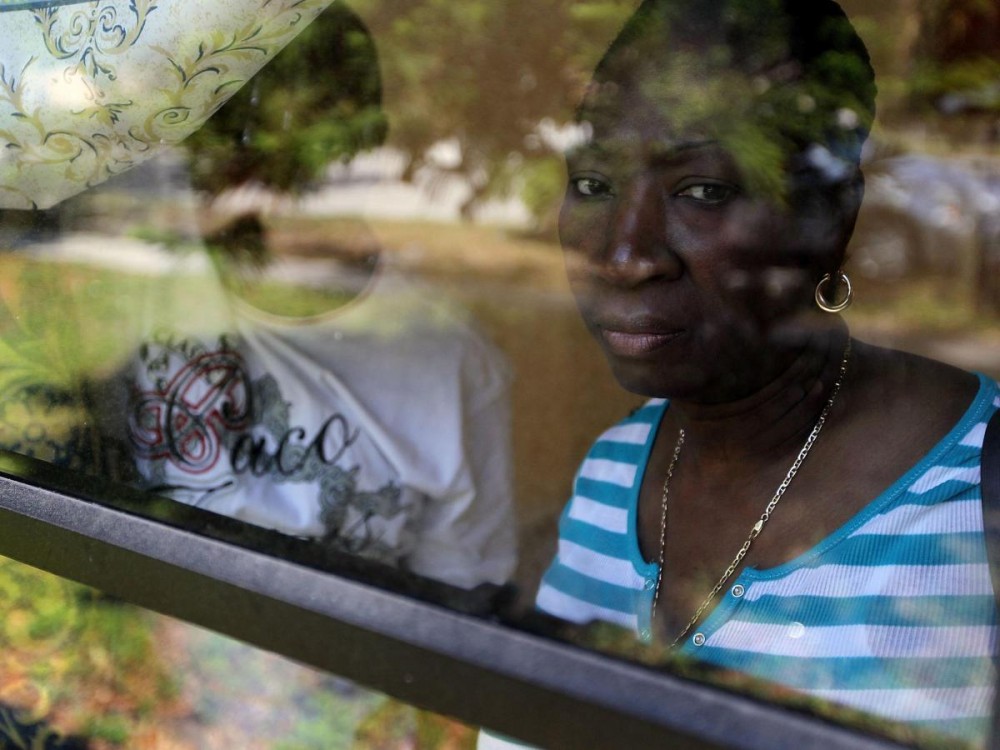
Wall Street wrecked the economy in 2007 due to its deals in shady mortgage securities that put the entire global economy on the brink. But do you think the big banks learned their lesson and decided to stop deceiving people with their overly complex financial instruments? The answer is, of course, a resounding No. Not only have the bankers received no human punishment – only fines – for destroying the economy, but they're now involving themselves in the rental arena and may create another financial crisis in the process.
The current crisis began with the Federal Housing Finance Agency's Real-Estate Owned (REO) initiative program in late February 2012. The purpose of the program was to allow “qualified investors to purchase pools of foreclosed properties with the requirement to rent the purchased properties for a specified number of years.” The premise of the REO initiative was to “provide relief for local housing markets that continue to be depressed by the volume of foreclosed properties, and provide additional rental options to certain markets.”
The initial phase involved allowing companies to purchase large amounts of foreclosed properties from Fannie Mae and Freddie Mac – and in a couple of years the properties could be converted into rental housing. However, an August 2011 information request about the upcoming program had already stated that its more specific goal was to “solicit ideas from market participants that would maximize the economic value that may arise from pooling the single-family REO properties in specified geographic areas.”
Granted, this makes sense in that you need information from corporations that can deal in the REO business on a large scale. But it also allows for these same corporations to have influence over what occurrs – and to potentially steer the program in a direction that is to their benefit.
A Swindle Is Born
Once the program opened, companies began snapping up properties quickly, then securitizing them in a process known as REO-to-rental securitization. The first company to do this was Blackstone, which “[packaged] rental income from single-family homes it owns into a pass-through security, similar to a mortgaged-backed security.” While some economists argued that this procedure could aid areas hit hardest in the housing crash, others worried that “these new investors could face big challenges managing large portfolios of dispersed rental houses.”
Investor companies like Blackstone raced to get into the new business, which had the potential to net returns much higher than investing in Treasury securities or stock dividends. According to Forbes, “while a 10-year Treasury note yields little more than 2%, economists at Goldman Sachs calculate that rental property investments yield more than 6% on average, nationwide.”
Even from its earliest beginnings, alarms about the REO initiative were being raised. While Moody’s allegedly gave such securitizations a triple-A rating, Fitch Ratings saw a major problem in the “limited performance data for the sector and individual property management firms.” Translation: People didn’t really know what they were getting into with a new market and a situation actually considered risky. Earlier this year, Standard & Poor’s went so far as to warn that rental security bonds didn’t deserve triple-A status due to their “operational infancy,” openly disagreeing with the optimistic forecast touted by Moody’s, Krolls, Morningstar and other ratings agencies.
Now, others are coming on board with a similar critique, saying that rent securitization could lead to serious consequences. Daniel Indiviglio, a columnist at Reuters, argues that the lack of data on securitization presents a number of challenges, namely that the securities “may require an entirely new infrastructure for appraising how rentable a home is and at what price."
According to Indiviglio, "The faults that the crisis exposed in securitization reinforce how crucial a good crop of historical information is on rental trends," and without any long-term data, investors and rating agencies alike will be forced “to make assumptions on new stats like vacancy rates, tenant turnover costs and property management fees.” Additionally, potential bond purchasers will want serious compensation for ponying up the money to buy these vacant houses; there's no assurance that a property is stable unless tenants have lived in it for quite some time or have signed a medium or long-term lease – something quite rare for renters just moving in.
“With foreclosures focused in a few key regions and resulting rentals appealing to specific segments of the population, concentration risk is likely to be magnified,” he concluded, raising the serious possibility that rental securitizations may cost more than they are actually worth.
Not only that, adding to the financial risk for investors is the possibility that rental bonds could possibly be increasing rents. In January 2014, Rep. Mark Takano (D-Calif.) sent a letter to House Financial Services Committee Chairman Jeb Hensarling and Rep. Maxine Waters (D-Calif.) "asking for an investigation into rental-backed securities deals.” Rep. Takano saw that rental prices were increasing and that “a surplus of investors in rentals – along with new rental-backed securities deals – could have the effect of artificially raising rental prices, making housing even more costly in parts of California.”
To back up his case, Takano cited a 2013 Federal Reserve report stating that in regard to companies buying up houses and renting them out, without proper oversight “investor activity may pose risks to local housing markets if investors have difficulties managing such large stocks of rental properties or fail to adequately maintain their homes."
"Such behavior could lower the quality of the neighborhoods in which investors own rental properties,” the report concluded.
Government Helps Re-Create A Crisis
One might assume that Congress would weigh the risks and costs and pass – or at least consider – laws to oversee rent securitization before it becomes the going trend. Senate and Congress couldn't just sit idly by and let a similar crisis like the one last decade evolve under the regulatory radar, right? Think again. To date, no legislation whatsoever overseeing rent securitization has occurred. Since Rep. Takano called for Congressional hearings in January, little has happened to address the issue.
But if you think it's a bad situation in Congress, think of the people who inhabit the houses owned by these under-examined corporations. Mindy Culpepper lived on the outskirts of Atlanta in a home inundated with the stench of raw sewage. She had her husband paid $1,225 a month to live in the three-bedroom house even as their landlord, Colony American Homes, ignored their complaints. The Culpeppers have had to live with the stench from the first day they moved in and to date, they see zero sign of any response by Colony to address the problem.
On the subject of houses in Atlanta, on April 15, the organization Occupy Our Homes Atlanta released a report entitled Blackstone: Atlanta’s Newest Landlord, which revealed that: (1) Tenants wishing to stay in their homes can face automatic rent increases as much as 20% annually; (2) Survey participants living in homes owned by Invitation Homes pay nearly $300 more in rent than the Metro Atlanta median; (3) 45% of survey participants pay more than 30% of their income on rent, by definition making the rent unaffordable; (4) Tenants face high fees, including a $200 late fee for rental payments; and (5) 78% of the surveyed tenants do not have consistent or reliable access to the landlord or property manager.
Furthermore, a July 2014 report by the same organization noted that while Invitation Homes “claims to have spent $25,000 per home to bring them up to standards, 46 percent of respondents reported plumbing problems, 39 percent found roaches or other insects, and around one in five had issues with air conditioning or mold or leaky roofs.” It's safe to say – and at this point should come as no surprise to anyone – that corporations like Invitation Homes only care about making money, not about taking care of tenants.
Conditions like these have a major impact, of course, on working people who already spend more than half their income on rent – but with rent securitization, the economic problems begin even before those people have entered the door. The organization Homes For All released a report focusing on Los Angeles rent securitization programs and found that “a major barrier to rental accessibility, especially for low-income renters, is the required deposit amount."
"In Los Angeles, the average deposit amount equated to 157 percent of respondents’ monthly rent amount. The highest deposit required as a percentage of monthly rent was 281 percent, and the lowest was 53 percent,” the report stated. With regards to amounts spent on rent, the report found that “67 percent of [the] respondents had unaffordable housing, and 47 percent were severely cost-burdened.”
There are other problems as well. In New York City, where private equity firms are buying up apartment buildings that are rent-controlled, companies are pushing long-term residents out of their apartments in order to redo the dwellings and sell them at market prices. These firms are often engaging in illegal tactics such as “mailing fake eviction notices, cutting off the heat or water, and allowing vermin infestations to take hold.”
Let's remember that serious money is on the table for these corporations. In 2005, Rockpoint Group “bought a complex of apartment buildings in Harlem known as the Riverton Houses. To justify the whopping $225 million mortgage, the company projected that it would be able to more than triple the rental income from $5.2 million to $23.6 million by forcing out half of the rent-regulated tenants within five years,” added the report.
While it has yet to breach the mainstream radar, rent securitization is already a major problem – not only because it mirrors the mortgage crisis that just occurred, but also because of the human impact it is already having. People already living in difficult conditions in rent-controlled apartments are being forced out, and those purchasing these corporate-owned apartments are often living in wretched conditions that rarely get serviced whatsoever. Americans need to say no now to this new scheme, lest we allow the past mortgage crisis to become a current rent fiasco.
3 WAYS TO SHOW YOUR SUPPORT
- Log in to post comments
















